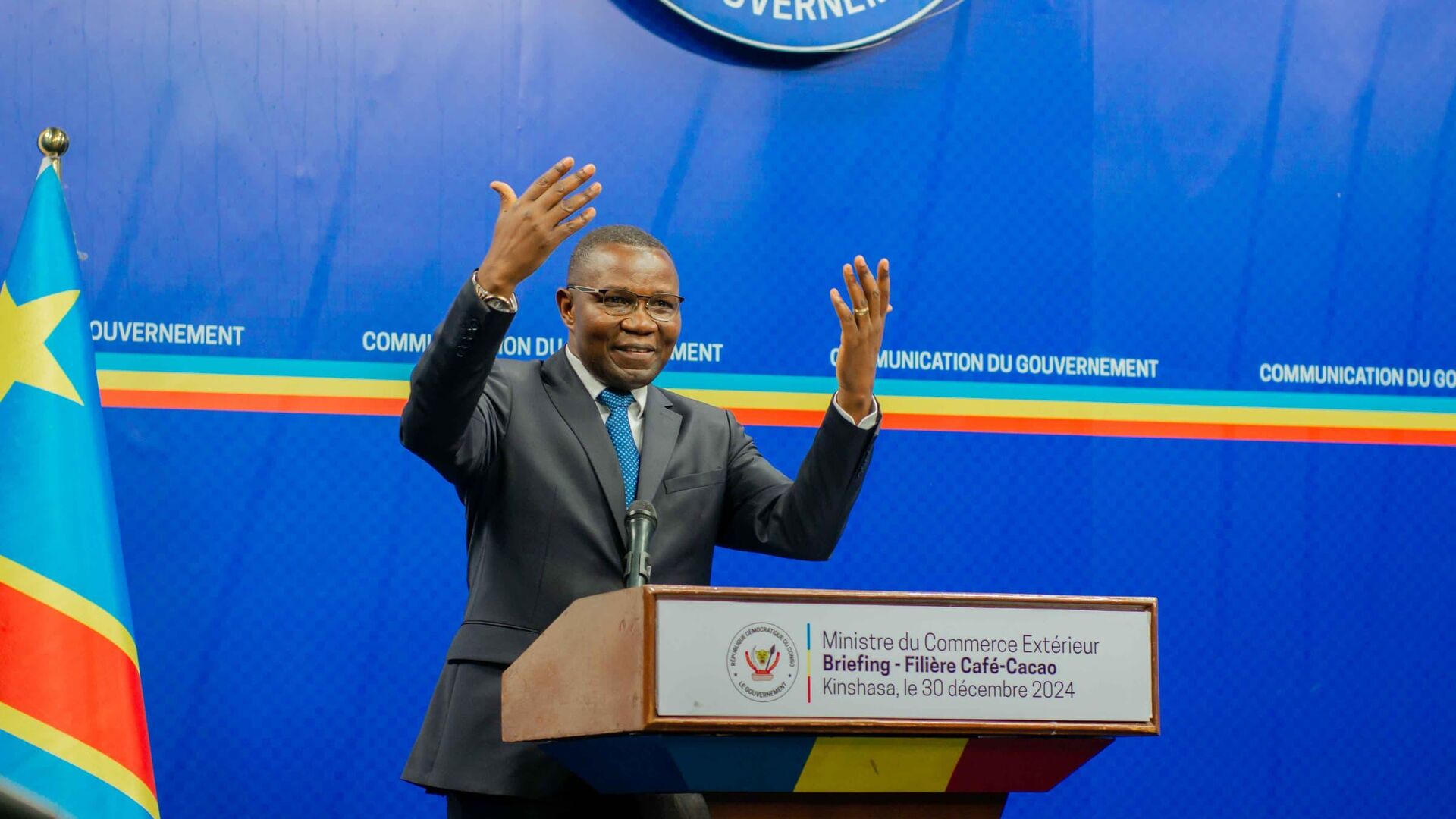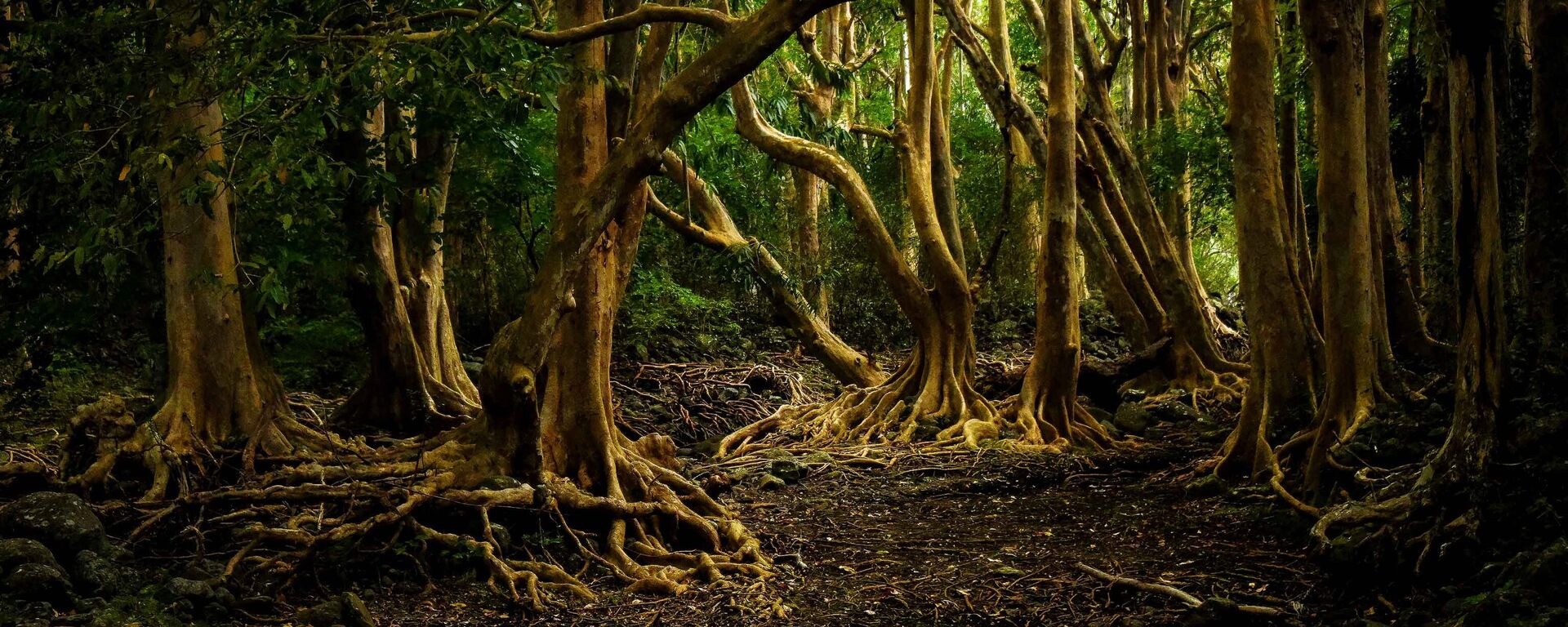https://en.sputniknews.africa/20250106/drc-implements-measures-to-counter-eu-cocoa-and-coffee-deforestation-sanctions-1070060972.html
DRC Implements Measures to Counter EU Cocoa and Coffee Deforestation Sanctions
DRC Implements Measures to Counter EU Cocoa and Coffee Deforestation Sanctions
Sputnik Africa
In October 2024, the EU announced a decision to postpone sanctions on exporters under the Deforestation Regulation, which bans products from deforested areas... 06.01.2025, Sputnik Africa
2025-01-06T15:15+0100
2025-01-06T15:15+0100
2025-01-09T17:40+0100
sub-saharan africa
democratic republic of the congo (drc)
european union (eu)
europe
central africa
trade
export
deforestation
regulation
market
https://cdn1.img.sputniknews.africa/img/07e9/01/06/1070060792_0:0:2400:1350_1920x0_80_0_0_ee85261155feaf043bb085d8ecc1b387.jpg
The DR Congo's Ministry of Foreign Trade pledged to take steps to address the recent withdrawal of Fairtrade and BIO certification from local cocoa and coffee producers following the EU's refusal to approve the conformity application due to ongoing insecurity in the region, and as the EU considers further deforestation sanctions against exporters, Foreign Trade Minister Julien Paluku told a press conference last week.Earlier, the Federation of Congolese Enterprises (FCE) in the Beni region of North Kivu province reportedly sent a letter to Paluku protesting against the withdrawal of the DRC coffee and cocoa from international Fairtrade and Organic certification by the Flocert and Africert certification bodies, which explained the decision by the EU’s refusal to approve their application for conformity due to security problems preventing on-site inspections in the eastern part of the country.The measures announced by Paluku at a press conference last week include strengthening dialogue with the EU, improving domestic certification processes to avoid reliance on international certifications, clarifying agricultural, forest and urban land use, supporting the Kivu-Kinshasa Green Corridor initiative to connect the main cocoa-producing regions of North Kivu and Ituri, and establishing a single export certification window. The FCE said the withdrawal of certification was a major setback, especially given that significant efforts had been made to re-establish Congolese cocoa and coffee on the international market with the support of partners such as the EU, USAID, IFAD and the World Bank.
https://en.sputniknews.africa/20240906/mozambique-launches-africas-largest-mangrove-restoration-project-1068172060.html
democratic republic of the congo (drc)
europe
central africa
Sputnik Africa
feedback@sputniknews.com
+74956456601
MIA „Rossiya Segodnya“
2025
News
en_EN
Sputnik Africa
feedback@sputniknews.com
+74956456601
MIA „Rossiya Segodnya“
Sputnik Africa
feedback@sputniknews.com
+74956456601
MIA „Rossiya Segodnya“
democratic republic of the congo (drc), european union (eu), europe, central africa, trade, export, deforestation, regulation, market, sanctions, coffee, cocoa, agriculture, economy
democratic republic of the congo (drc), european union (eu), europe, central africa, trade, export, deforestation, regulation, market, sanctions, coffee, cocoa, agriculture, economy
DRC Implements Measures to Counter EU Cocoa and Coffee Deforestation Sanctions
15:15 06.01.2025 (Updated: 17:40 09.01.2025) Elizaveta Roschina
Writer/Editor
In October 2024, the EU announced a decision to postpone sanctions on exporters under the Deforestation Regulation, which bans products from deforested areas from the EU market, until December 30, 2025 instead of the end of 2024, to allow time to bring production into line with the regulation.
The DR Congo's Ministry of Foreign Trade pledged to take steps to address the recent withdrawal of Fairtrade and BIO certification from local cocoa and
coffee producers following the EU's refusal to approve the conformity application due to ongoing insecurity in the region, and as the EU considers further deforestation sanctions against exporters, Foreign Trade Minister Julien Paluku told a press conference last week.
Earlier, the Federation of Congolese Enterprises (FCE) in the Beni region of North Kivu province reportedly sent a letter to Paluku protesting against the withdrawal of the DRC coffee and
cocoa from international Fairtrade and Organic certification by the Flocert and Africert certification bodies, which explained the decision by the EU’s refusal to approve their application for conformity due to security problems preventing on-site inspections in the eastern part of the country.
"The European Union's decision was unjustified, as Congolese coffee and cocoa are not produced in areas affected by deforestation, Paluku stated.
The measures announced by Paluku at a press conference last week include strengthening dialogue with the EU, improving domestic certification processes to avoid reliance on international certifications, clarifying agricultural, forest and urban land use, supporting the Kivu-Kinshasa Green Corridor initiative to connect the main cocoa-producing regions of North Kivu and Ituri, and establishing a single export certification window.
"Given the economic war being waged against the DRC, the Congolese government will not hesitate to apply reciprocity in trade and economic diplomacy if the European Union implements its decision," the minister emphasized.
The FCE said the withdrawal of certification was a major setback, especially given that significant efforts had been made to re-establish Congolese cocoa and coffee on the international market with the support of partners such as the EU, USAID, IFAD and the World Bank.
"Without certification from January 2025, our products will no longer be able to be marketed as organic or fair trade, with serious economic and social consequences for the country," read the letter.


